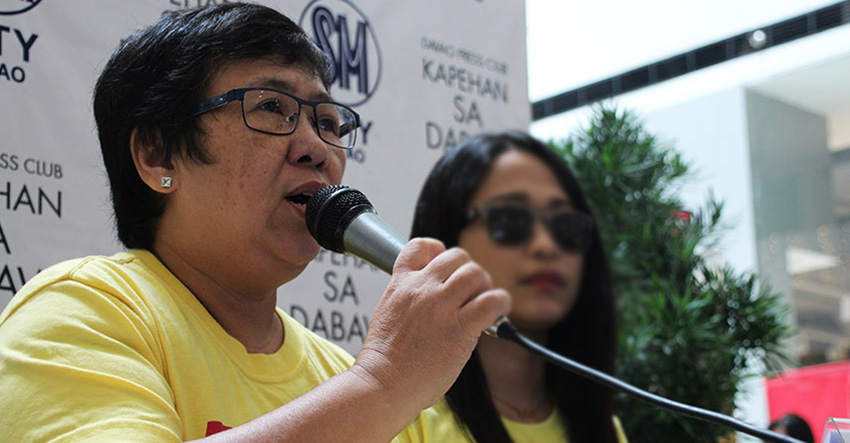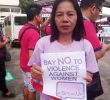
A day of no prostitution, according to Talikala, Inc., includes no pornography, phone sex, cyber sex, mail order bride services, escort services, trafficking, stripping, sex tours and prostitution occurring in massage parlors, on the streets, in hotels or everywhere else. (Paulo C. Rizal/davaotoday.com)
DAVAO CITY, Philippines – An anti-children and women trafficking group here called on to stop engaging and promoting prostitution in an international campaign dubbed No Prostitution Day on October 5.
“Women and children should not be treated like commodities or objects that can be bought. Our foremost aim in this campaign is to deter the public from contributing to the prostitution of women by not “buying” women or children from the streets at night, and to avoid places like clubs that offer this kind of entertainment,” Jeanette Ampog, executive director of Talikala Inc., said on Monday.
Ampog said that prostitution has become a survival option of not just women, but also of students who want to continue their education and help their families.
“The main reason why so many women are prostituted is because poverty continues to be prevalent,” Ampog said.
A day of no prostitution, according to Talikala, includes no pornography, phone sex, cyber sex, mail order bride services, escort services, trafficking, stripping, sex tours and prostitution occurring in massage parlors, on the streets, in hotels or everywhere else.
In Davao City, prostituted women who are registered in the city health department received free medical check-up and contraception. This is in compliance with the Women’s Development Code, affording women working in the entertainment industry “free medical routine check-up and medicines if needed.”
Davao’s Women’s Development Code also defines prostitution as a “violation of human rights and exploitation of women to have no real choices for survival.”
According to the Coalition Against Trafficking in Women, there are currently 1,500 registered prostituted women in the city who possessed occupational permits while there are 2,000 occasional or unregistered prostituted women, about twenty percent of which are children as of 2015. The youngest documented prostituted child was 11 years old.
“Our challenge to the new administration, now that he [Pres. Rodrigo Duterte] has a bigger leverage, is to end prostitution by addressing its roots, one of which is by giving livelihood. If not livelihood, at least give them employment no matter how low the income,” Ampog said.
“We saw that if these women only had other options, they would stop selling their bodies, they will work to change their situation,” Ampog added.
The city’s observance of No Prostitution Day is a local version of the International Day of No Prostitution Project (INDP) of the Bay Area IDNP Collective in the USA in 2002.
The said activity was supported by a proclamation signed by then city mayor Rodrigo R. Duterte in 2005 that declared October 5 of every year as “a day of no prostitution in Davao City.” (davaotoday.com)









